My Beekeeping Journey
How I started beekeeping in Northumberland
I started beekeeping in 2010, after moving to rural Northumberland. I had built the raised beds, to grow some vegetables, and had three chickens, which gave us eggs everyday, and thought the next step was to get some bees. After attending a weekend course and going along to the local beekeepers association, at Alnwick & District Beekeeping Association, for a few Saturday mornings, as well as reading a couple of beginners guide books, I felt ready to get my first bees. I was given a swarm of local bees in a nuc box from a friendly, well respected beekeeper and splashed out on a full WBC hive from Thornes.
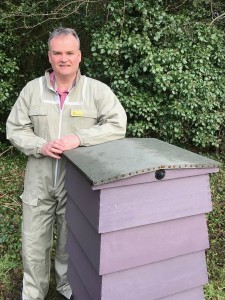 People often asked me why I started with a WBC hive. I wish I could have given a really considered answer about the benefits of double walled hives but the reality was that my wife thought WBC’s hives look nice! Anyway, everything went well for the first winter and following season. This whole beekeeping thing seamed to be easy, looking at them from time to time at weekends, getting some honey and generally leaving them to get on with it. Then towards the end of the next winter I lost the colony, probably from my own poor winter preparations for them.
People often asked me why I started with a WBC hive. I wish I could have given a really considered answer about the benefits of double walled hives but the reality was that my wife thought WBC’s hives look nice! Anyway, everything went well for the first winter and following season. This whole beekeeping thing seamed to be easy, looking at them from time to time at weekends, getting some honey and generally leaving them to get on with it. Then towards the end of the next winter I lost the colony, probably from my own poor winter preparations for them.
Beginner Beekeeper Challenges
Undeterred, I bought another colony from a well respected local commercial beekeeper and set about looking after them in the same way as I had the first colony. The bees were very productive and had a very good temperament but after a month (early June) it all kicked off! They swarmed. Not a beginners’ swarm! A massive primary swarm from a full size prolific colony. I caught it and put it into another WBC hive. It swarmed again! I caught it again! In fact I caught it seven times in six days. I tried everything, merging it, splitting it, new hive in new location, new hive old location. Out of desperation I eventually killed the queen and they stopped swarming. Well for about a week anyway! Then there was a smaller swarm every day for about two weeks, most of them I caught and put into every old hive or nuc box I could borrow, make or buy. I did not understand what was going on and I was out of control.
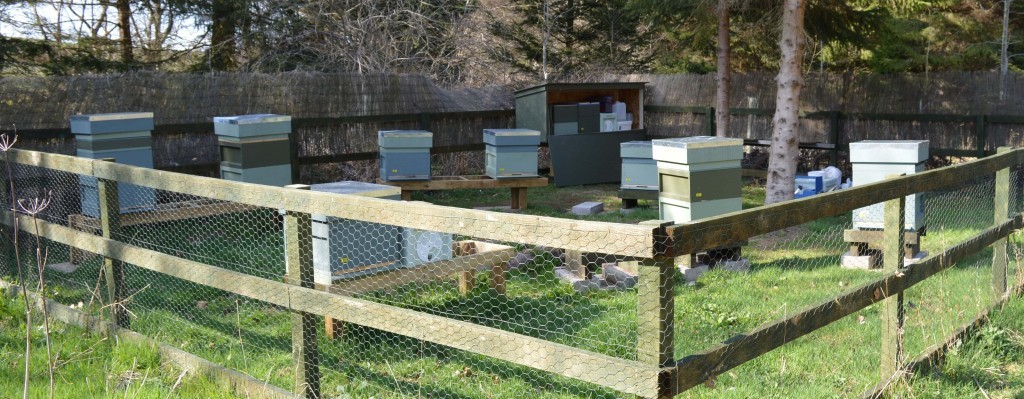
That’s when I made the decision that I either needed to give up beekeeping or get good at it, and that was the day when my journey to become a master beekeeper started.
Developing General Husbandry Skills & Knowledge
I really got “bee fever”, as one of my beekeeping friends calls it. Starting the process of going through the BBKA modules required a lot of reading and preparation for and taking of exams. Beginning the BBKA practical assessments also required more commitment. After the basics the BBKA General Husbandry assessment was the first really big step up. I built an apiary in a clearing in a nearby broad leaf mature wood on land that I was able to rent, to take 10 hives, getting as much experience as I could from handling bees, building my own hives and starting to raise queens. I converted my utility room into a “honey room”, with PVC wall covering, installing a double sink, making a honey warmer from an old fridge and collecting the stainless equipment needed to process honey. Taking the food hygiene exams to make sure I could fell confident in selling my honey locally.
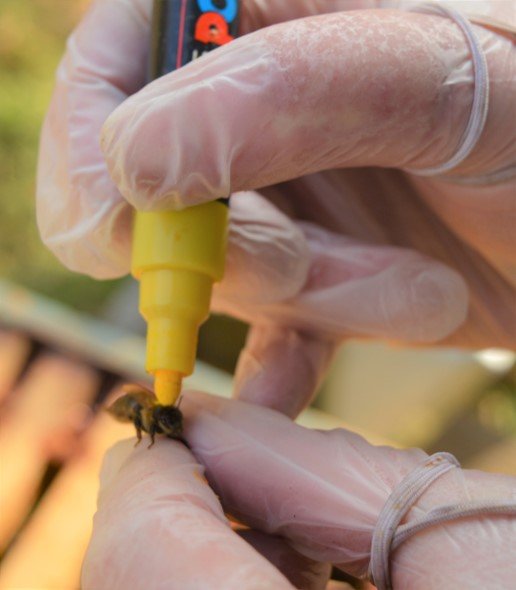
I was getting hooked on beekeeping. I was fascinated by every aspect of the subject. It seamed that every time I leaned about one aspect of beekeeping, it made me realize how much I did not know about other aspects, or new subjects which just fueled the passion to learn more. Then it got serious! Going for the advanced assessment.
Striving to become a Master Beekeeper
Two things really made a difference at this stage. The first was reading the work done by Tom Seeley. There are many great writers on beekeeping but I found Tom Seeley’s books really readable and inspiring. His work gave me a thirst for reading many of the modern writers and an understanding of the research approach behind modern beekeeping knowledge. The second was traveling all over the country to attend the best training courses that I could find, given by professional trainers, with both experience and academic credibility. The core of this was the series of NBD short courses and having the opportunity to attend the NDB advanced course were game changers for my understanding and skills.
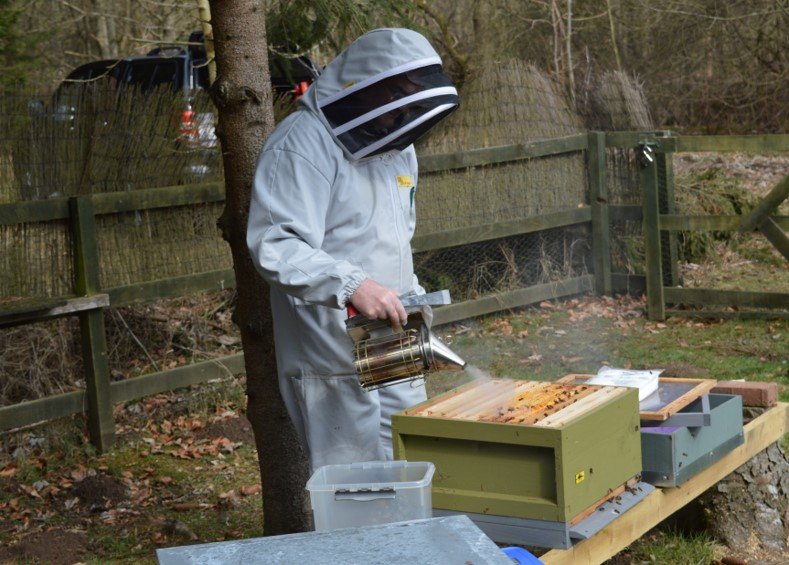
I did not realize at the start of my journey that I would become the proud owner of two microscopes or that it would become another area of beekeeping that I would become proficient in and fascinated by. In the summer of 2017 I passed my advanced husbandry assessment and later in November 2017 when I took and passed the last of the Modules (module 8) I achieved my ambition of being a master beekeeper.
Northumberland Master Beekeeper – what’s next ?
So what do I want to do with it?
- Be confident in looking after my 20+ colonies at my apiaries near Netherwitton Estate and Cragend Farm.
- Make the training I have traveled the country for available in Northumberland.
- Help beekeepers in Northumberland to improve their skills and knowledge. Especially those who have kept bees for a couple of years and are struggling to understand or control their bees.
- Encourage beekeepers in Northumberland to breed local, healthy, well tempered bees, which are adapted and thrive in our regional conditions.
- Engage in a way that is inclusive of beekeepers with a busy lifestyle and all strains of bees.
I have created this blog to share my progress through the year with my own bees, with the aim of giving other Northumbrian beekeepers an insight into the regional beekeeping calendar and to inspire them to learn more about the fascinating world of beekeeping.
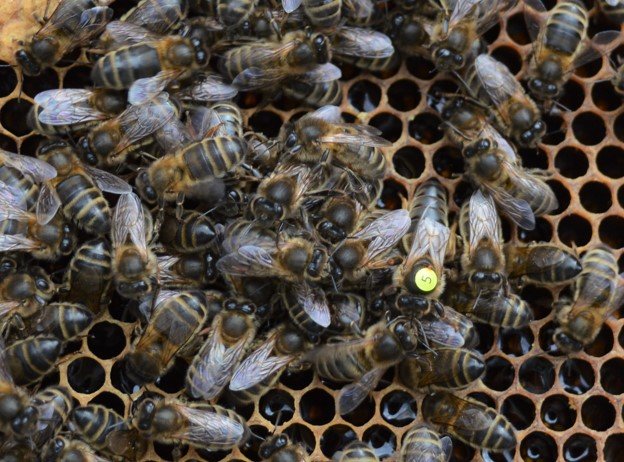
If you would like to follow my story please “like” my Facebook page and/or subscribe to my blog.
Full Disclosure
I set up this website to share my experiences and passion for beekeeping with others and improve the standard of bees and beekeeping for “hobby beekeepers”.
In my blogs I make suggestions on the equipment that I have found useful and where to get it from. These recommendations are always for books I have read or equipment I use. I do not get any “free stuff” from suppliers or run comparisons that lead to payments from the suppliers. I do have an Amazon Affiliate account, so for any links to items on Amazon, that lead to purchases, do get me a small commission. The amounts are small and I put them towards the website running costs.
If you register I will only use your email to send you new posts, using secure mailing tools and will not pass it on to anyone else.
